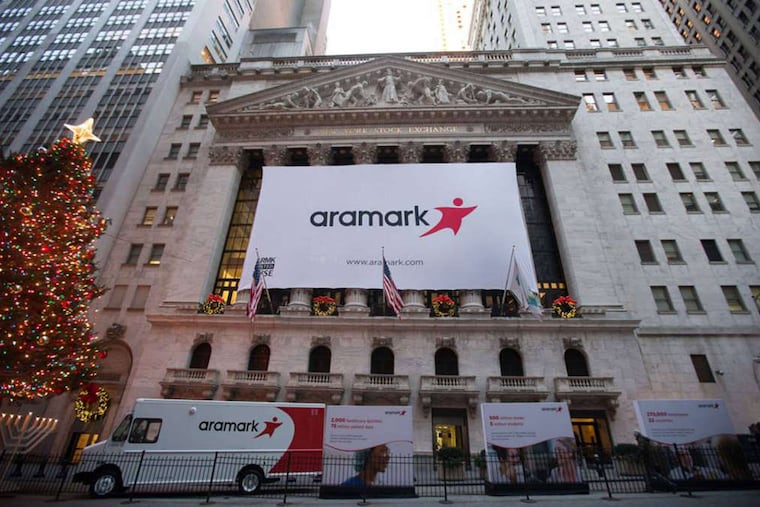Aramark stock soars after it assures investors
Aramark's shares are down 75 percent since January. The Philadelphia company sought to assure investors that was financially stable.

Aramark’s shares soared 41 percent — more than $5 — Thursday after the Philadelphia food-service giant reassured investors on Thursday that it has the financial flexibility to weather the COVID-19 storm.
The stock closed at $18.27 on a day when all major stock indexes climbed. Still, the shares remain down 60 percent from a recent peak in January.
In its announcement to shareholders, Aramark said it was too soon to determine the full financial impact of COVID-19, which has led to the suspension of sports and other events in arenas and stadiums and to the early end of classes at college campuses and K-12 schools — both important sectors for Aramark.
Although the revenue drop caused by COVID-19 cancellations could be great, Aramark estimated that its operating profit would decline by only 15% to 20% because its costs for labor and supplies go away when locations close.
“We are well-positioned to navigate the uncertainty of the current environment due to our strong liquidity position, highly flexible, low fixed-cost operating model, as well as our diversified client portfolio and geographic mix," chief executive John Zillmer said in a news release.
As a precaution, Aramark withdrew $230 million on its revolving credit line Wednesday, increasing cash availability to $1.3 billion.
At the end of December, Aramark had $7 billion in long-term debt. It told investors Thursday that it is not in danger of violating conditions under its loan agreements. It said it sees no need to borrow more money in the near future, which promises to be a volatile time in the credit markets.
At least one part of Aramark’s operations has gotten busier. Its building services units “are providing more frequent and comprehensive services at some locations that require enhanced sanitization and deep cleaning, enabling a safer environment for existing and returning employees,” the company said.
In China, most of Aramark’s business is in health care. It “has recovered and been awarded new contracts in recognition of our increasingly valued service,” the company said.